Weekend Collision Repair: Managing Reputations Beyond Business Hours
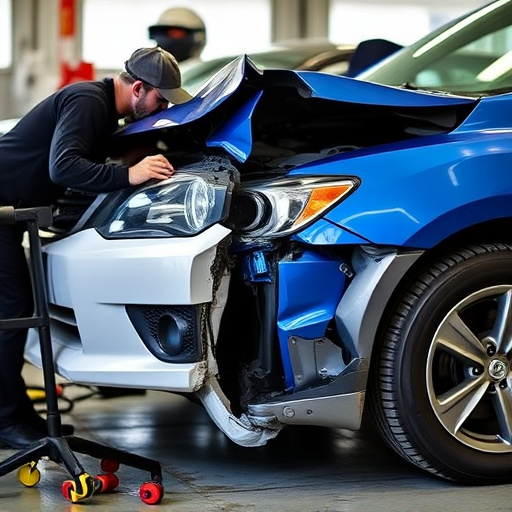
Modern customers demand instant gratification for vehicle repairs, especially weekends. Offering wee…….
Welcome to an in-depth exploration of the dynamic world of weekend collision repair—a specialized sector within the automotive industry that has evolved to meet the growing demand for efficient, high-quality vehicle restoration outside regular working hours. This article aims to guide readers through the intricacies of this field, highlighting its significance, global reach, and the various factors shaping its future. By delving into case studies, industry trends, and technological innovations, we will uncover the multifaceted nature of weekend collision repair and its impact on both local communities and the global automotive landscape.
Weekend collision repair, as the name suggests, refers to a service model within the automotive repair sector that caters to customers’ needs for vehicle damage assessment, repair, and restoration during non-traditional working hours, typically on weekends or public holidays. This specialized service is designed to accommodate individuals with demanding schedules who may not have time during regular business hours.
The core components of weekend collision repair encompass:
Emergency Roadside Assistance: Promptly addressing vehicle breakdowns or accidents by providing immediate roadside support, including towing and initial damage assessment.
Rapid Damage Assessment and Estimation: Skilled technicians conduct thorough inspections to identify and document vehicle damage, followed by precise estimation of repair costs and timeframes.
Efficiency-Driven Repair Processes: Optimized workflows, utilizing advanced diagnostics and specialized equipment, ensure that repairs are completed swiftly without compromising quality.
Customer Convenience: Flexible scheduling, extended hours, and convenient drop-off/pickup options enhance customer satisfaction and convenience.
The concept of weekend collision repair has its roots in the evolving expectations of modern consumers. Historically, automotive repair shops operated during standard business hours, leaving individuals with limited options when facing unexpected vehicle issues outside these periods. This gap in service prompted the emergence of mobile roadside assistance and specialized weekend repair services to cater to a growing demand for immediate and accessible vehicle care.
Over time, weekend collision repair has evolved significantly:
Early Days: Local automotive garages offered basic roadside assistance and emergency repairs during weekends to address urgent matters.
Growth Phase: With increasing urbanization and a rise in personal vehicle ownership, the demand for convenient, after-hours services led to the establishment of dedicated weekend repair centers.
Modern Era: Technological advancements have revolutionized the industry, enabling real-time diagnostics, efficient inventory management, and streamlined communication between customers and service providers.
Weekend collision repair has left a significant global footprint, with diverse regions adopting and adapting this service model to meet local needs. The international influence can be attributed to several factors:
Growing Urban Populations: Dense urban areas often have limited parking spaces, prompting the need for efficient, after-hours vehicle restoration services.
Demanding Work Schedules: In many countries, shift work and non-traditional schedules are prevalent, leaving individuals with less time during business hours to address vehicle issues.
Tourism and Travel: Popular tourist destinations often experience high traffic volumes, creating a demand for quick and reliable collision repair services to accommodate travelers’ needs.
The adoption and evolution of weekend collision repair vary across regions:
| Region | Trend | Description |
|---|---|---|
| North America | Rapid Growth | The United States and Canada have witnessed exponential growth in weekend collision centers, driven by dense urban populations and a strong culture of vehicle ownership. |
| Europe | Integration with Mobile Services | Many European countries have integrated weekend repair services with mobile applications, allowing customers to book appointments, receive real-time updates, and streamline the claim process. |
| Asia Pacific | Focus on Convenience | In regions like Japan and South Korea, convenience is a key focus, with shops offering extended hours, same-day repairs, and seamless insurance claim processes. |
| Middle East | High-End Services | The Gulf countries have developed luxury weekend collision repair centers, providing premium services to cater to the region’s affluent population and expatriates. |
The global weekend collision repair market is characterized by:
High Demand: With increasing vehicle ownership and complex modern vehicles, the demand for specialized, after-hours repair services continues to rise.
Competitive Landscape: The market is highly competitive, with established players, independent garages, and new entrants offering varying levels of service quality and pricing.
Regional Variations: Economic conditions, labor costs, and local regulations significantly influence the market dynamics in different regions.
Investing in weekend collision repair offers several opportunities:
Franchising Models: Many successful businesses adopt franchising models, allowing entrepreneurs to leverage a proven business concept while enjoying brand recognition and support.
Technologically Advanced Shops: Investing in state-of-the-art equipment and software can enhance efficiency, reduce turnaround times, and attract tech-savvy customers.
Mobile Services: Expanding into mobile collision repair services provides flexibility and convenience, reaching customers where they are and reducing the need for them to travel.
Weekend collision repair contributes significantly to local economies:
Job Creation: It generates employment opportunities, from skilled technicians to administrative staff, supporting local communities.
Revenue Generation: The industry contributes to GDP through revenue generated from repair services, parts sales, and related offerings.
Support for Local Businesses: Many collision repair shops collaborate with local bodyshops, paint centers, and insurance providers, fostering a network of interconnected businesses.
Technological advancements have revolutionized weekend collision repair:
Advanced Diagnostics: Modern diagnostic tools enable technicians to quickly identify vehicle issues, streamline repairs, and reduce downtime.
Specialized Equipment: Specialized machinery, such as robotic welding systems and advanced paint mixing technology, enhance repair precision and speed.
Inventory Management Software: Cloud-based inventory management systems optimize parts procurement, track stock levels, and facilitate efficient order placement.
The digital revolution has transformed how weekend collision repair services are delivered:
Online Booking Platforms: Customers can conveniently book appointments, upload images of damage, and receive real-time updates on their vehicle’s progress.
Mobile Applications: Dedicated apps provide instant quotes, track claim status, and offer personalized service recommendations.
Remote Expertise: Through video conferencing and remote diagnostics, experienced technicians can provide expert advice even when physically present at a job site.
The future holds immense potential for technological advancements:
Artificial Intelligence (AI): AI-powered systems can enhance damage assessment accuracy, predict repair times, and optimize resource allocation.
Augmented Reality (AR): AR technology can guide technicians through complex repairs, providing visual instructions overlaid on the actual vehicle.
Autonomous Vehicles: As autonomous vehicles become more prevalent, collision repair processes may need to adapt to accommodate unique challenges and requirements.
Weekend collision repair operates within a regulatory framework that varies across jurisdictions:
Licensing and Permits: Most countries require collision repair facilities to obtain licenses and permits to operate, ensuring compliance with safety standards and environmental regulations.
Insurance Regulations: Insurance companies play a significant role in the industry, influencing pricing, coverage, and claim processing procedures. Regulatory bodies oversee insurance practices to protect consumers.
Environmental Standards: Strict emission control and waste management regulations impact the industry, especially in relation to solvent usage, recycling, and disposal of automotive fluids.
Policies and regulations shape weekend collision repair operations:
Safety Standards: Compliance with safety standards ensures technician training, equipment maintenance, and workplace protocols, prioritizing the well-being of employees and customers.
Consumer Protection: Regulations protect consumers from unfair practices, ensuring transparent pricing, accurate estimates, and prompt claim settlements.
Industry Standardization: Harmonized regulations promote standardization across regions, facilitating cross-border business opportunities and knowledge sharing.
Despite its successes, the weekend collision repair industry faces several challenges:
Staffing Shortages: Skilled technicians are in high demand, leading to staffing shortages, especially in rural areas or regions with limited training programs.
Parts Availability: Ensuring a reliable supply of genuine parts, especially for older vehicle models, can be challenging due to manufacturer discontinuations or limited distributors.
Regulatory Compliance: Keeping up with evolving regulations and safety standards requires significant investment in training, equipment, and documentation processes.
Criticisms of the industry include:
High Costs: Some customers perceive weekend collision repair services as expensive due to premium labor rates and specialized equipment. Providing transparent pricing and promoting competitive offerings can address this concern.
Limited Accessibility: In remote areas, accessing weekend collision repair services may be challenging due to distance or limited service providers. Expanding mobile repair services and partnerships with local businesses can improve accessibility.
Environmental Concerns: The industry has faced criticism for its environmental impact, particularly regarding waste management and solvent usage. Implementing eco-friendly practices, such as water recycling and greener cleaning solutions, can mitigate these concerns.
Challenge: High population density and limited parking spaces in Tokyo presented challenges for customers seeking convenient collision repair services.
Solution: A leading Japanese automotive group introduced a network of weekend-only collision centers strategically located throughout the city. These centers offered extended hours (8 am – 10 pm), same-day repairs, and seamless insurance claim processes via a user-friendly mobile app.
Results: The initiative significantly reduced repair times, enhanced customer satisfaction, and established a new standard for urban collision repair services. The success led to the expansion of similar weekend repair centers across major Japanese cities.
Challenge: In rural regions of Australia, access to specialized collision repair services is limited due to long distances and low population densities.
Solution: A tech-savvy Australian startup developed a mobile collision repair service, utilizing remote diagnostics and a fleet of fully equipped vans. This model enabled technicians to assess damage, perform initial repairs, and offer on-site estimates at the customer’s location.
Results: The mobile service expanded access to collision repair, reducing travel time for customers and increasing convenience. The startup gained popularity among rural communities and received accolades for its innovative approach.
Challenge: Accurate damage assessment is crucial for efficient collision repair, but traditional methods can be time-consuming and subjective.
Solution: A German automotive manufacturer collaborated with AI researchers to develop an advanced damage assessment system. The system uses computer vision algorithms to analyze high-resolution images of vehicle damage, providing instant, objective estimates for repairs.
Results: This technology reduced assessment times by 75%, improved precision, and allowed technicians to focus more on complex repairs. The success led to the integration of AI-assisted damage assessment across their global collision repair network.
The future holds promising growth opportunities for weekend collision repair:
Electric Vehicle (EV) Repair: With the rise of electric vehicles, specialized equipment and training for EV repairs will be essential, creating new service offerings and job roles.
Autonomous Vehicle Services: As autonomous vehicles become mainstream, collision repair centers may need to adapt their services to accommodate unique damage patterns and repair requirements.
Extended Warranty Services: Expanding partnerships with automotive manufacturers and insurance providers for extended warranty programs can provide additional revenue streams.
Several emerging trends shape the industry’s future:
Digital Twin Technology: Creating digital twins of vehicles enables remote monitoring, predictive maintenance, and personalized repair recommendations, enhancing customer experience.
Subscription-Based Models: Offering collision repair services on a subscription basis provides customers with peace of mind and potential cost savings over time.
Green Repair Initiatives: Adopting eco-friendly practices, such as solar energy adoption, water recycling, and the use of biodegradable materials, will gain prominence as environmental concerns continue to grow.
Weekend collision repair has evolved from a niche service to a vital component of the modern automotive industry, catering to the diverse needs of customers worldwide. Through technological advancements, efficient processes, and strategic adaptations, this sector continues to advance, ensuring that vehicle owners receive prompt and high-quality repairs during non-traditional hours. As the global automotive landscape evolves, weekend collision repair will play an increasingly crucial role in maintaining the safety, reliability, and accessibility of vehicles for millions of people.
Q: How do I choose a reputable weekend collision repair shop?
A: Look for shops with proper licensing, insurance, and positive customer reviews. Ask for references and check their warranty policies. Online platforms and local business associations can be valuable resources for finding reputable providers.
Q: Are weekend repairs more expensive than regular business hours?
A: While some services may be premium, many collision repair shops offer competitive pricing during weekends. Transparent pricing, detailed estimates, and the convenience of extended hours often outweigh the cost difference.
Q: Can I track the progress of my vehicle’s repair during the weekend?
A: Yes, many collision repair centers provide real-time updates via online booking platforms or mobile apps. You can stay informed about your vehicle’s status, estimated completion time, and any changes to the initial estimate.
Q: What should I do if my insurance company doesn’t cover weekend repairs?
A: Review your policy for specific clauses regarding emergency or after-hours repairs. If not covered, consider discussing options with your insurer, such as paying out of pocket and submitting a claim later, or choosing a shop within your network for better rates.
Q: How can technology enhance the weekend collision repair experience?
A: Technology improves efficiency through advanced diagnostics, real-time communication, and streamlined processes. It also offers convenience with online booking, mobile apps, and remote expertise, ensuring customers have a seamless experience during non-traditional repair hours.

Modern customers demand instant gratification for vehicle repairs, especially weekends. Offering wee…….
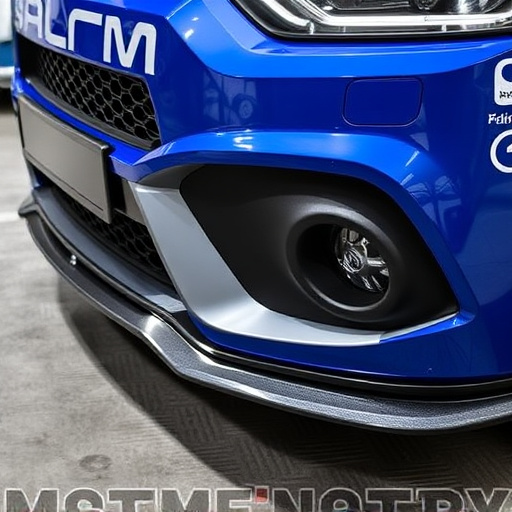
Planning weekend collision repair for glass replacement? Research reputable auto body shops offering…….
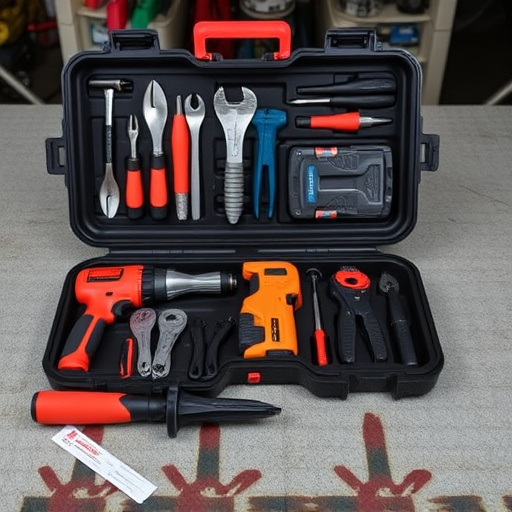
The demand for weekend collision repair services is growing due to busy lifestyles and increased roa…….

Modern consumers demand flexible, convenient automotive services due to busy schedules. The growth o…….
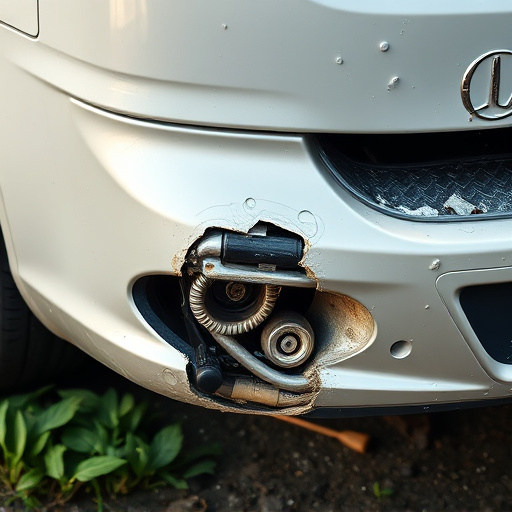
Expanding collision center operating hours to include weekends significantly improves efficiency and…….
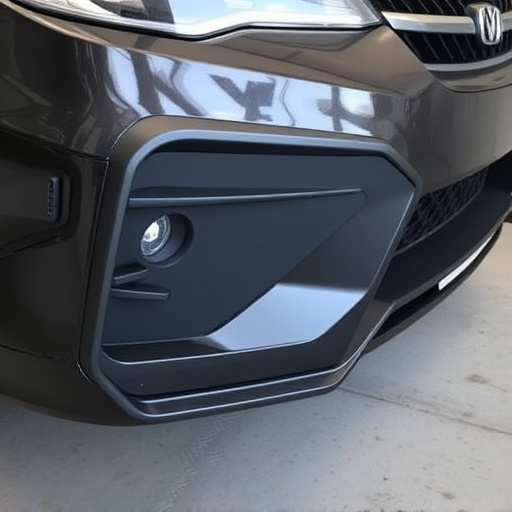
DIY weekend collision repair involves assessing minor damages, using tools like dent pullers and scr…….

Modern weekend collision repair services offer flexible solutions for both minor and significant aut…….
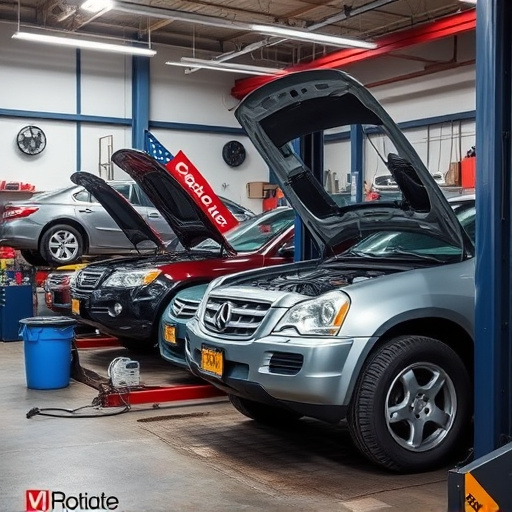
For successful weekend collision repair on classic cars, select specialized tools like hammers, putt…….